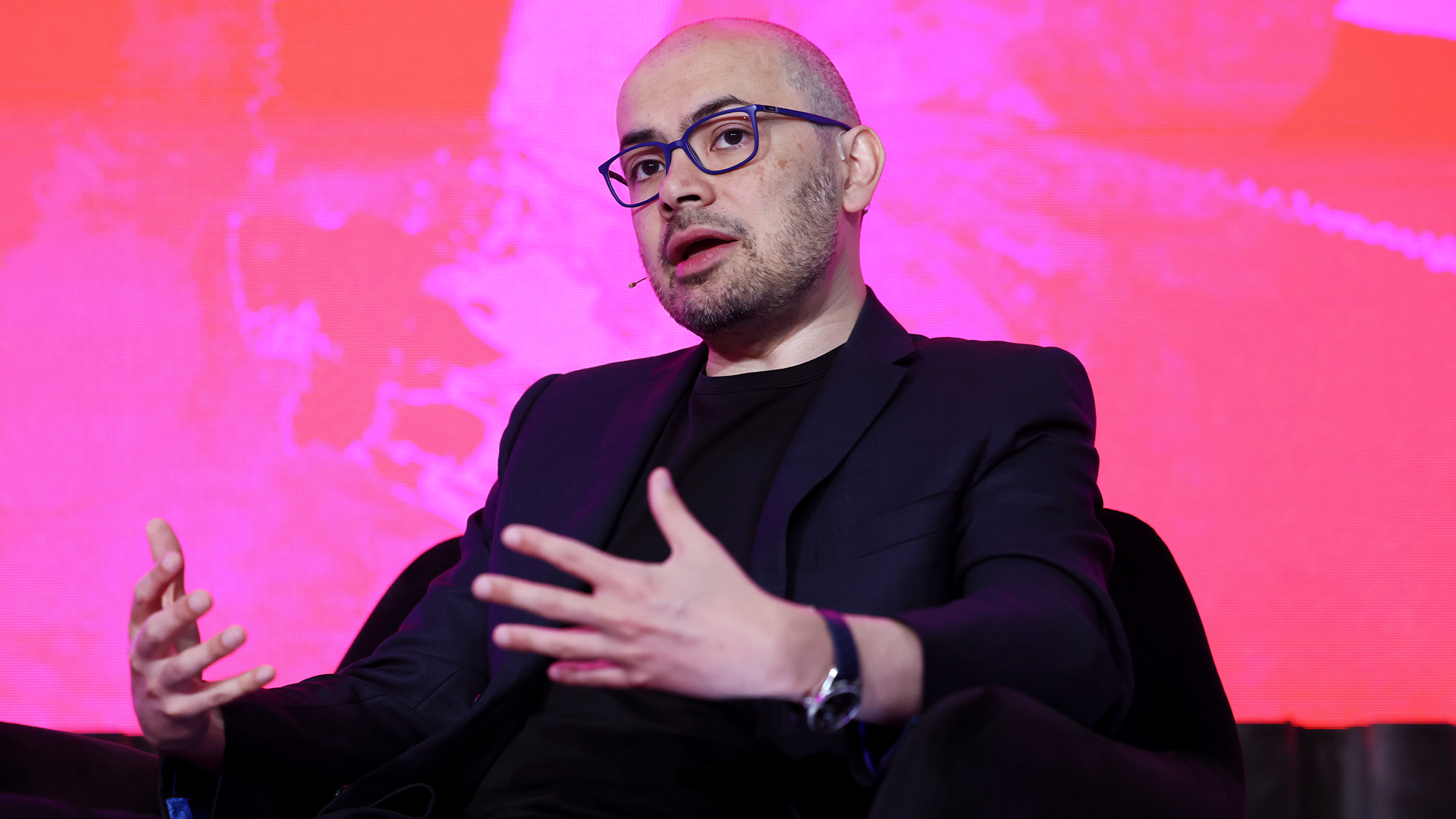2024 was the year where AI finally started returning on investment
It's taken a while, but enterprises are finally beginning to see the benefits of AI


It’s been a whirlwind two years in the generative AI race. Since ChatGPT launched in November 2022, we’ve gone from concerns over sentient world-killing AI supervillains to tempered expectations on what enterprises can actually gain from the technology.
While there’s obviously great potential in generative AI from a business perspective – be it cost savings, improvements to operational efficiency, and productivity boosts for staff – the messaging hasn’t quite matched up to the promises made by big tech providers.
That’s not to say gains haven’t been made, however. In certain roles and industry verticals, the technology is proving highly beneficial. Take software development, for example.
Research from GitHub this year found its Copilot AI coding assistant helped developers write code 55% faster. That’s a significant boost to efficiency by any standards, and it wasn’t the only advantage. Developers reported improvements to readability, maintainability, and reliability of code.
Of course, GitHub has a vested interest in promoting the incredible gains that can be unlocked by its proprietary tool. Alternative research has questioned the claims, noting that AI coding tools are actually causing more problems than they solve.
But there’s more to AI adoption than simply purchasing shiny new tools and throwing them at employees. A strategic approach to AI adoption across all levels of the enterprise is far trickier, time-consuming, and costly.
And it’s that last aspect of the equation that’s left many tech leaders in a rut.
Sign up today and you will receive a free copy of our Future Focus 2025 report - the leading guidance on AI, cybersecurity and other IT challenges as per 700+ senior executives
2023 was a year of unbridled hype and hyperbole when it came to generative AI, with industry leaders like Microsoft making grandiose promises about how AI assistants, or ‘copilots’, will be a game changer.
But you would’ve been better off watching paint dry than keeping tabs on the news cycle for tangible use cases and case studies at that time.
Simply put, AI just wasn’t delivering financial gains for early adopters. In a study published earlier this year, IT leaders described return on investment (ROI) in AI as a ‘finger in the air’ exercise.
Confusion over when the benefits would arrive and when the coffers would start filling up has been a recurring theme of the generative AI era so far. According to Forrester’s Q2 AI Pulse Survey, around half of enterprise decision makers said their organisation expects a return on investment within one-to-three years.
Meanwhile, another 44% said they expect ROI to take far longer. Given the scale of investment required, it’s hardly surprising some tech leaders have been sweating.
Going into this period, purse strings were already tight and enterprises were cutting costs across the board. The fact many even had the financial flexibility to dive headlong into this latest industry trend is perplexing - maybe offloading thousands of workers helped loosen things up slightly.
Light on the horizon
Looking ahead to 2025, however, things are promising. In recent months we’ve seen tangible real-world examples of generative AI delivering on its promises.
Research from Google Cloud in August showed that seven-in-ten UK firms have already seen a positive ROI from the tech in at least one use case. Somewhere between 32% and 45% said they expect to achieve ROI on their roll-out strategies within the next year.
These ROI examples are all in distinct areas in the business, with the most promising use-cases arising in customer and field service roles. Digital commerce and customer experience are two other areas where firms are unlocking value, Google Cloud found.
Analysis from Microsoft and IDC also shows growing room for optimism on the ROI front, with a study published in November showing generative AI offers an ROI of $3.70 for every dollar invested.
Deployment times are also shrinking, the study noted, taking less than eight months to complete a roll-out, and an ROI within 13 months.
It’s taken a while, but we got there in the end, I guess.
Big tech providers aren’t content with standing still, however. We’ve got a new fad emerging in the broader industry now that will once again rule the airwaves in the year ahead - namely agentic AI.
Among the early champions of this new ‘era’ in the generative AI race has been Salesforce, which launched its Agentforce service in September this year. CEO Marc Benioff has been highly vocal about the benefits of agentic AI and at the firm’s Dreamforce conference took the opportunity to slam Microsoft’s Copilot service repeatedly.
Agentic AI represents a step change in how enterprises use the technology. Rather than investing in clunky AI assistants that sit adjacent to the human worker, agents will carry out tasks on their behalf.
So far, the signs are promising - albeit rather concerning if you’re a worker in the business segments agents will be embedded in.
Given it’s taken two years to begin truly unlocking value from generative AI, diving nose first into the latest trend will be a daunting task for many enterprise IT leaders, but one I’m sure they’ll still relish.
Discussions over return on investment with agentic AI will likely be the next rinse-and-repeat process for the industry.

Ross Kelly is ITPro's News & Analysis Editor, responsible for leading the brand's news output and in-depth reporting on the latest stories from across the business technology landscape. Ross was previously a Staff Writer, during which time he developed a keen interest in cyber security, business leadership, and emerging technologies.
He graduated from Edinburgh Napier University in 2016 with a BA (Hons) in Journalism, and joined ITPro in 2022 after four years working in technology conference research.
For news pitches, you can contact Ross at ross.kelly@futurenet.com, or on Twitter and LinkedIn.
-
 Westcon-Comstor enters Balkan market with REAL Security acquisition
Westcon-Comstor enters Balkan market with REAL Security acquisitionNews The acquisition gives the distribution giant immediate access to an established partner ecosystem spanning eight Balkan markets
-
 Inside the SME tech revolution: The quiet role of the channel in driving real change
Inside the SME tech revolution: The quiet role of the channel in driving real changeIndustry Insights Why the channel is becoming essential in guiding SME modernization.
-
 If Satya Nadella wants us to take AI seriously, let’s forget about mass adoption and start with a return on investment for those already using it
If Satya Nadella wants us to take AI seriously, let’s forget about mass adoption and start with a return on investment for those already using itOpinion The Microsoft chief said there’s a risk public sentiment might sour unless adoption is distributed more evenly
-
 Satya Nadella says a 'telltale sign' of an AI bubble is if it only benefits tech companies – but the technology is now having a huge impact in a range of industries
Satya Nadella says a 'telltale sign' of an AI bubble is if it only benefits tech companies – but the technology is now having a huge impact in a range of industriesNews Microsoft CEO Satya Nadella appears confident that the AI market isn’t in the midst of a bubble, but warned widespread adoption outside of the technology industry will be key to calming concerns.
-
 DeepSeek rocked Silicon Valley in January 2025 – one year on it looks set to shake things up again with a powerful new model release
DeepSeek rocked Silicon Valley in January 2025 – one year on it looks set to shake things up again with a powerful new model releaseAnalysis The Chinese AI company sent Silicon Valley into meltdown last year and it could rock the boat again with an upcoming model
-
 Google’s Apple deal is a major seal of approval for Gemini – and a sure sign it's beginning to pull ahead of OpenAI in the AI race
Google’s Apple deal is a major seal of approval for Gemini – and a sure sign it's beginning to pull ahead of OpenAI in the AI raceAnalysis Apple opting for Google's models to underpin Siri and Apple Intelligence is a major seal of approval for the tech giant's Gemini range – and a sure sign it's pulling ahead in the AI race.
-
 Microsoft CEO Satya Nadella wants an end to the term ‘AI slop’ and says 2026 will be a ‘pivotal year’ for the technology – but enterprises still need to iron out key lingering issues
Microsoft CEO Satya Nadella wants an end to the term ‘AI slop’ and says 2026 will be a ‘pivotal year’ for the technology – but enterprises still need to iron out key lingering issuesNews Microsoft CEO Satya Nadella might want the term "AI slop" shelved in 2026, but businesses will still be dealing with increasing output problems and poor returns.
-
 Google DeepMind CEO Demis Hassabis thinks startups are in the midst of an 'AI bubble'
Google DeepMind CEO Demis Hassabis thinks startups are in the midst of an 'AI bubble'News AI startups raising huge rounds fresh out the traps are a cause for concern, according to Hassabis
-
 Google DeepMind partners with UK government to boost AI research
Google DeepMind partners with UK government to boost AI researchNews The deal includes the development of a new AI research lab, as well as access to tools to improve government efficiency
-
 Microsoft quietly launches Fara-7B, a new 'agentic' small language model that lives on your PC — and it’s more powerful than GPT-4o
Microsoft quietly launches Fara-7B, a new 'agentic' small language model that lives on your PC — and it’s more powerful than GPT-4oNews The new Fara-7B model is designed to takeover your mouse and keyboard